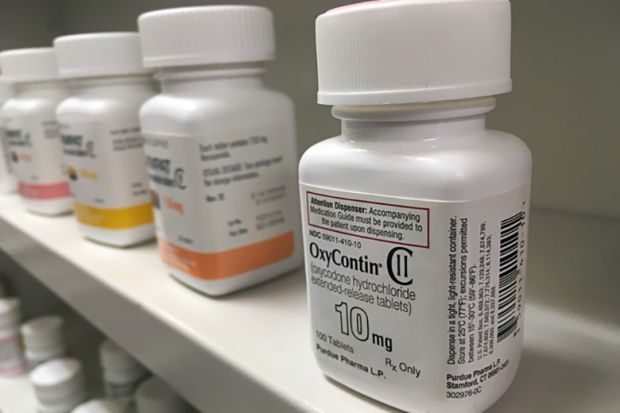If you travel to North America these days and ask about opioids, pretty well everyone you meet is likely to know someone affected: a relative, someone in their neighbourhood, a friend’s family member. It doesn’t matter whether the person you ask is from a “vibrant” part of town or a middle-class ghetto. As many people are on opioids as have attention deficit hyperactivity disorder or take antidepressants, and the death rates from these drug accidents combined dwarf those from road traffic accidents.
There are about 30,000 opioid-related deaths per year, more than 500,000 in the past two decades and heading towards 1 million since the epidemic took root in the 1980s. This makes opioid deaths the biggest single killer in North America at present. The wonder is that Europe remains comparatively spared.
But the twist in the story is that these opioids aren’t bought on the street. We’re talking Marcus Welby, M. D. or Dr. Kildare rather than The Wire or Hill Street Blues. We’re talking about pharmaceutical companies that support pension funds, rather than the Mafia.
As with SSRI antidepressants, at the heart of the marketing of prescription opioids were two elements. One, as with serotonin, was a myth: in this case, the claim was that people in genuine pain don’t get addicted to opioids. The other was the incorporation of clinical trials into treatment guidelines. There is no place for clinical wisdom in guidelines – wisdom is not evidence-based. Doctors were suddenly faced with patients who were angry if they were not being treated according to the standard of care.
This epidemic needs a good history, and Drug Dealer, MD isn’t that history. But using a handful of cases, Anna Lembke skilfully brings out the key issues. At times she gets very basic, but she held my attention nonetheless because on the next page she invariably brought in the complications. You expect an upbeat ending, but none of her cases turns out well, which is quite a position for a clinician treating a problem to take. It might have been difficult for a man to admit impotence in the same way.
This is a story with mythic resonance. Opioid use was the problem in 1914 that made all drugs prescription-only, an arrangement that has resulted in us all being treated like addicts by our doctors, who control access to treatments. The book outlines how Purdue Pharmaceuticals and AbbVie (or Abbott, as it was then known) exploited this arrangement to turbocharge the sales of OxyContin, which Purdue introduced in 1996, and followed by other companies with opioids such as Fentanyl. Stronger variations on OxyContin and Fentanyl have since been put on the market by the US Food and Drug Administration’s right hand, while its left hand is increasingly frantically trying to help control the epidemic. The latest move is to make powerful drugs, such as the opioid antagonist Naloxone, available without prescription.
Meanwhile, if you do visit North America and know any doctors who have any contact with this problem, you are likely to find them spooked by tales of stronger opioid derivatives being synthesised in Chinese labs, small amounts of which could wipe out the populations of entire states. It is difficult to resist thoughts of a replay of the Opium Wars.
David Healy MD is professor of psychiatry, Bangor University.
Drug Dealer, MD: How Doctors Were Duped, Patients Got Hooked, And Why It’s So Hard to Stop
By Anna Lembke MD
Johns Hopkins University Press
192pp, £15.00 ISBN 9781421421407
Published 14 January 2017
POSTSCRIPT:
Print headline: A pill a day takes the craving away
Register to continue
Why register?
- Registration is free and only takes a moment
- Once registered, you can read 3 articles a month
- Sign up for our newsletter
Subscribe
Or subscribe for unlimited access to:
- Unlimited access to news, views, insights & reviews
- Digital editions
- Digital access to THE’s university and college rankings analysis
Already registered or a current subscriber?




